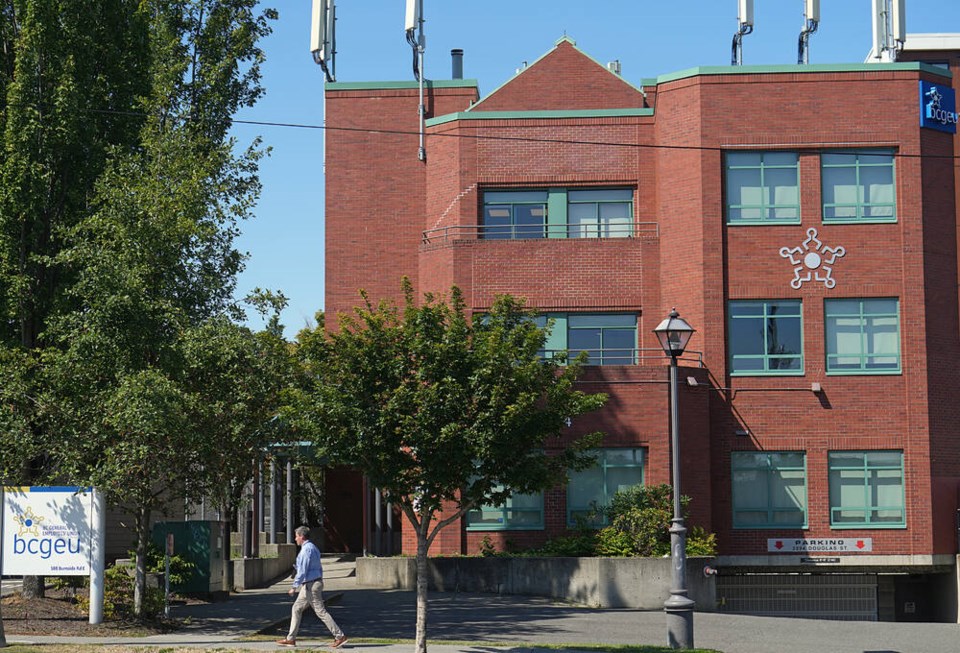As B.C.’s main public-service union prepares for a strike vote, it’s releasing results of a member poll that paint a dire financial picture amid inflationary pressures and rising housing costs.
The internal poll conducted by the B.C. General Employees’ Union in June found half of union members are living paycheque to paycheque, while 30 per cent are dipping into their savings to pay for daily life expenses.
One in five BCGEU members who responded to that poll said they took on a second job to make ends meet, according to the report released by the union, which says members make less money than their peers in other provinces and the federal government.
BCGEU members were paid an average weekly salary $1,348.03 — 2.7 per cent less than the weekly average pay in B.C. — and some of its members are paid up to 20 per cent less than public-sector workers in Ontario in similar jobs, the report said.
Seven in 10 members surveyed reported paying more than 30 per cent of their income for shelter.
BCGEU represents a wide range of public-sector workers, including liquor store clerks, wildfire fighters, social workers, probation officers and desk workers.
An internal survey conducted late last year showed that more than half the respondents had seriously considered leaving the public service in the past three years, mostly because of low wages.
“When experienced public servants cannot imagine a future on their incomes, they will leave the public service for the private sector or other levels of government where salaries have remained competitive,” BCGEU president and bargaining chair Paul Finch said in the report.
At the same time, the BCGEU said non-union management jobs have grown at nearly double the rate of unionized positions since 2010, and the annual salary for a management role is on average $44,500 higher than a unionized role.
BCGEU, which represents about 34,000 public-service workers, is holding a strike vote next month.
The union said talks broke down with the province’s Public Service Agency on Friday over issues including competitive wages and access to remote work.
The two parties have been in talks for a new agreement since January.
BCGEU’s previous contract, ratified by 53.4 per cent of voting members in 2022 after eight months of talks and a two-week strike, expired in March.
Finch said the public sector stands to lose skilled workers if wages don’t keep up with the cost of living.
Finance Minister Brenda Bailey, who was not made available for an interview Monday, said while the government respects the BCGEU’s right to hold a strike vote, she’s optimistic the collective bargaining process will work out. “I am hopeful the parties will return to the table soon — it’s best to keep the bargaining discussions at the table so the parties can focus on reaching a settlement,” she said in a statement.
BCGEU was among the first public-sector unions to enter into talks with the province for a new contract this year starting in January. About 450,000 public sector workers are negotiating new contracts this summer, including unions representing teachers, nurses and hospital employees.
This year’s negotiations are the first in 15 years where the province has not released a public-sector bargaining mandate to guide talks.
Former NDP cabinet minister George Heyman, who was BCGEU president from 1999 to 2008, has been hired by the province in a $58,000 contract advisory role related to public-sector bargaining that ends this month.
— with files from The Tyee via Local Journalism Initiative
>>> To comment on this article, write a letter to the editor: [email protected]



